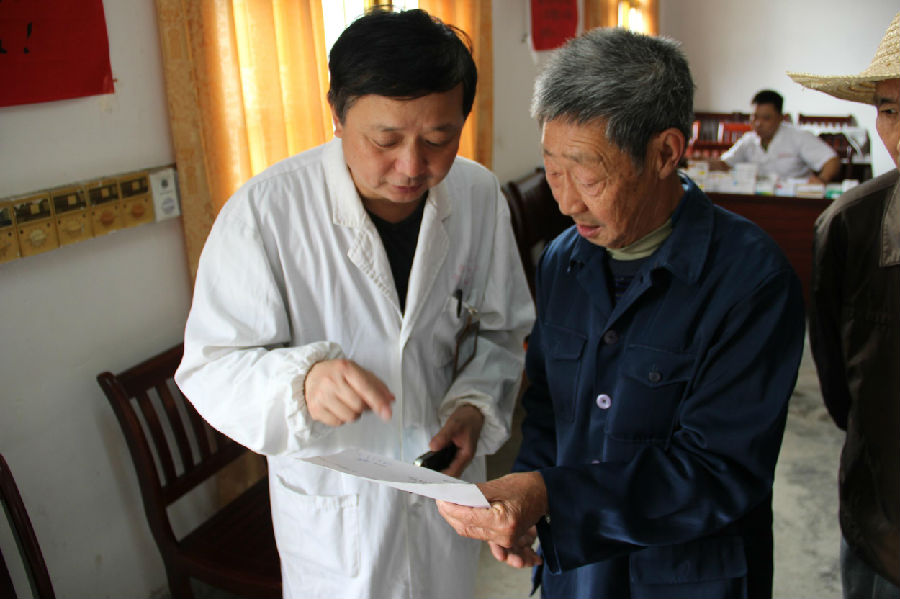Very often, the doctor collects urine specimen.
医生经常需要患者提供尿液试样。
It gives important information about the body's functioning.
这可以提供关于机体运行情况的重要信息。
The specimen is usually tested to see if there are something unusual in it.
通常对尿液试样的检测是为了寻找里面是否有异常物质。
This specimen can be collected at any time.
尿液试样随时可以采集。
But, the first morning urine is the most important because most of the elements are most concentrated at this time.
但是,早上第一次排尿的试样是最重要的,因为这一时间尿液中的各种元素浓度最高。
Theoretically, urine is sterile. However, it can become polluted with bacteria as it passes out of the body.

理论上来讲,尿液应当是无菌的。但是,其在排出体外的过程中可能感染细菌。
Therefore, the area should be carefully cleaned before a specimen is collected.
因此,在采集尿液之前要仔细清理排尿部位。
Any bacterial growth might suggest a urinary tract infection.
任何细菌生长的迹象会被认为是尿道感染的症状。
If there are bacteria in the urine, they should be grown or cultured and identified.
如果尿液中含有细菌,需要对它们进行培养并鉴别。
Sensitivity testing shows the antibiotic that would be effective against the microorganism.
灵敏度测试可以显示抗生素对抗微生物的高效程度。
A timed, or 24-hour urine collection determines kidney function and urine function.
定时或者24小时采集尿液用以确定肾功能和排尿功能是否正常。
This process makes it possible to measure such things as amino acids, proteins and glucose in the urine.
这一过程中可以测量尿液中的包括氨基酸、蛋白质和葡萄糖等物质含量,
Though levels of these elements can change over time.
虽然尿液中的元素含量在随时发生着改变。
Timed collections begin when a patient urinates.
定时采样从病人开始排尿开始。
The health care worker collects every successive specimen until the end of the 24-hour period.
医护人员需连续采集患者24小时内的每一次排尿试样。
译文属可可原创,仅供学习和交流使用,未经允许不得转载












